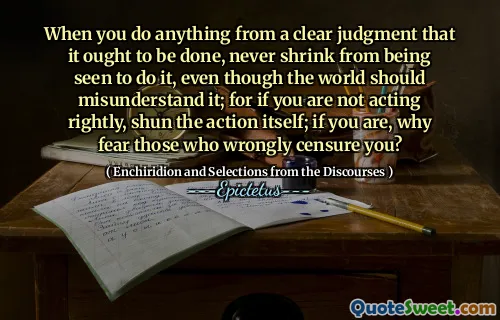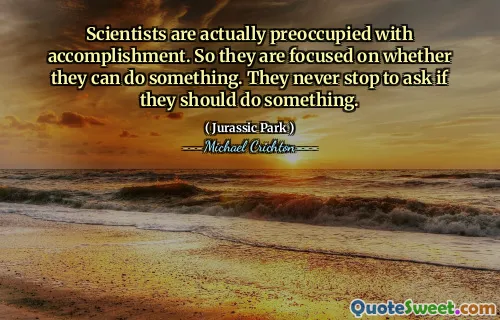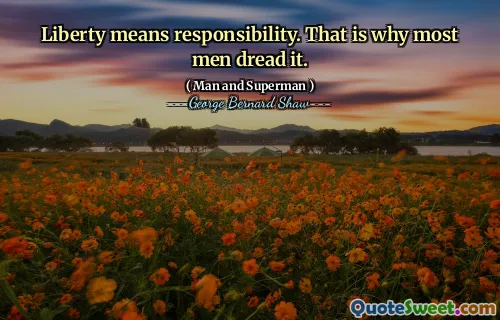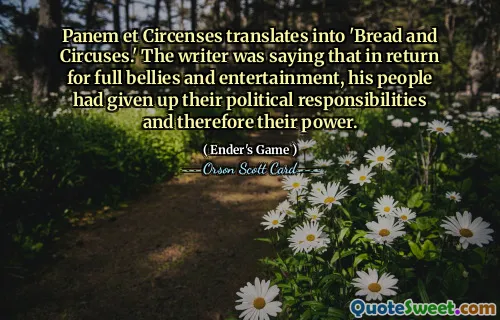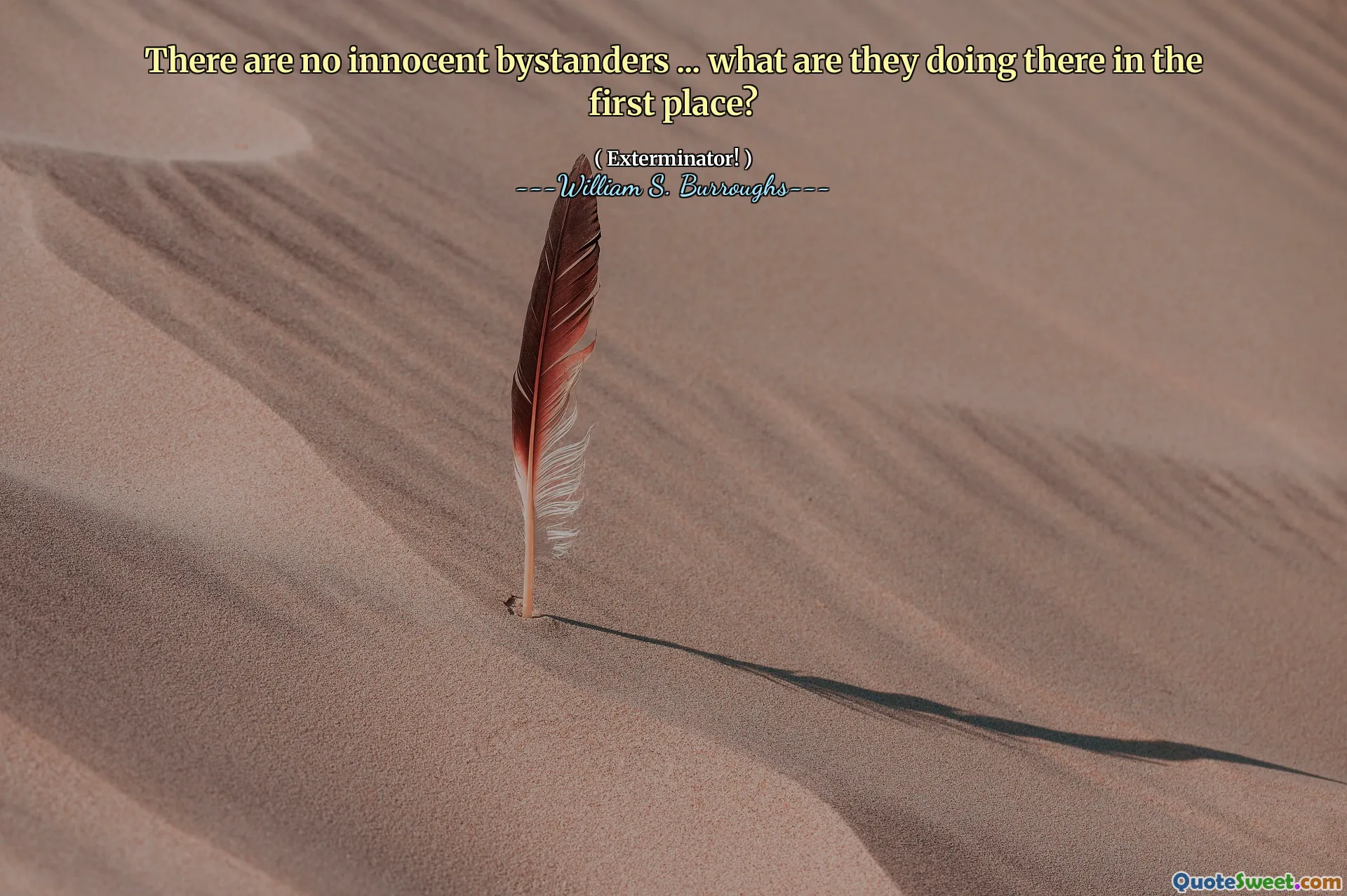
There are no innocent bystanders ... what are they doing there in the first place?
In "Exterminator!" by William S. Burroughs, the author explores the concept of moral accountability in a chaotic world. He suggests that in situations of conflict, there are rarely truly innocent individuals, as everyone is implicated in the broader societal issues, regardless of their intentions. The provocative quote questions the presence of bystanders in violent scenarios, implying that their mere existence in such environments contributes to the ongoing turmoil.
This perspective encourages readers to examine their own roles in events and encourages active participation rather than passive observation. Burroughs’ work pushes for a deeper understanding of societal dynamics, urging individuals to reflect on their involvement in the violent realities of the world around them. By challenging the notion of innocence, the author calls for greater awareness and responsibility in confronting the complexities of human interactions.

